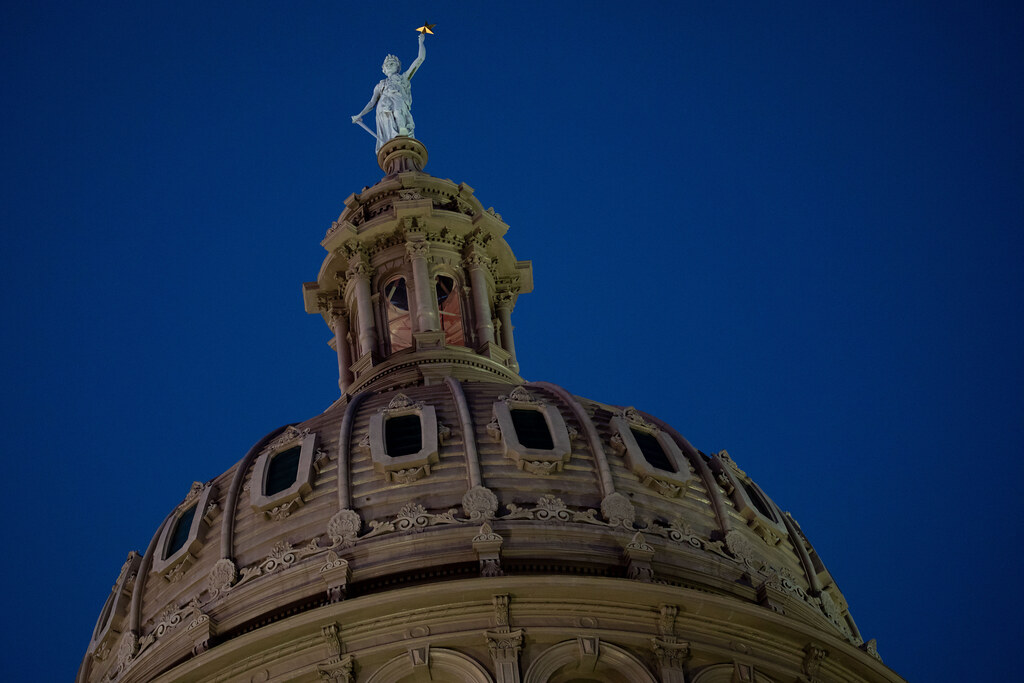The final two months of the 88th Texas Legislature are upon us. As lawmakers continue to discuss legislation, conversations often hinge on one important factor: money.
You may have heard that Texas has a rather large budget surplus this year: upwards of $32 billion. The Texas Tribune reported that surplus is bigger than the entire budget of some smaller states.
Many advocacy groups and lawmakers have expressed their priorities for where they want that money to go. This week, we will find out a little more about how the Texas House of Representatives wants to spend the state’s funds.
Sergio Martínez-Beltrán, who covers state politics for the Texas Newsroom, said House members will have the ability to speak to their priorities during the floor debate.
“There are a few issues where I think we can expect disagreements between Democratic and Republican members,” he said. “But also, you know, if the House were to pass the budget this week, it’s going to be sent to the Senate later on. And that’s when we’re going to start seeing a lot of back-and-forth with that other chamber.”
Martínez-Beltrán said he expects to see an intense showdown between the Senate and the House, particularly over property tax relief. Gov. Greg Abbott, Lt. Gov. Dan Patrick and House Speaker Dade Phelan have all named property tax relief as a priority this session. However, the chambers have different proposals for how to accomplish this goal.
“The Senate has proposed to spend $16.5 billion to lower property taxes. Part of their plan is to raise the homestead exemption from $40,000 to $70,000. They’d also like to increase that exemption for people over 65 years old and folks with disabilities,” Martínez-Beltrán said. “The House is proposing a $17 billion spending plan. And instead of raising the homestead exemption to reduce property taxes, the House is actually looking at lowering the appraisal caps to 5%. Right now, the state law says that the value of a home cannot be raised by more than 10% every year. So this plan would make that number 5%.”
According to Martínez-Beltrán, the House proposal is not popular with Patrick.
“He has said the House plan could actually destroy everything the Republicans have done in the past to lower property taxes,” Martínez-Beltrán said. “So I think this is when the games begin.”
Martínez-Beltrán said he expects the House budget to change through amendments and through compromise between the two chambers before the final document is sent to the governor’s desk. The House budget usually receives bipartisan support in the final vote, he said.
“By the time this budget bill gets to the floor, usually the Democratic leadership has had some conversations with the Republican leadership behind the scenes,” Martínez-Beltrán said. “This is the time that usually Republicans and Democrats talk about bipartisanship. Budget discussions are tense, but they tend to pass these budget bills with almost unanimous support. Like last session in 2021, the House passed the final version of the budget 142 votes to six.”
Until that point, though, Martínez-Beltrán said he expects negotiations between lawmakers of different parties to reach the final result.
“Republicans and Democrats, even though most of the time align with their party, there are some differences. And I think that some Republicans potentially might need Democratic votes to either kill amendments or pass amendments. So I think this is when (Democrats) come in and could play a powerful role,” he said. “These conversations are happening behind the scenes, and we’re not seeing those conversations.”














